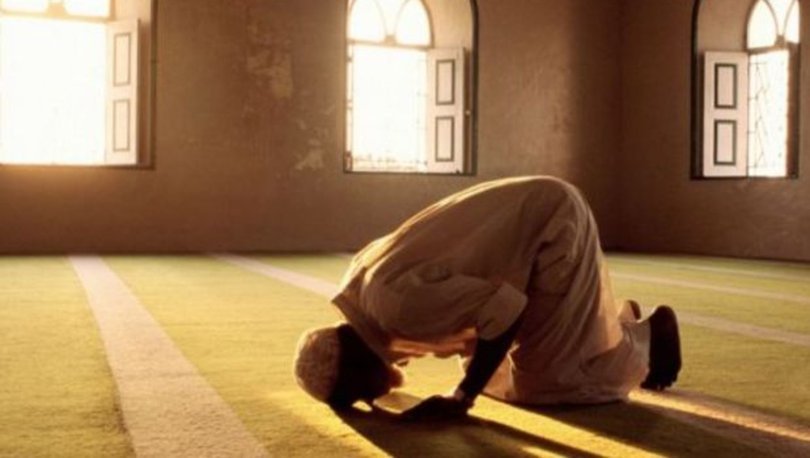
Salah, also known as prayer or namaz, is one of the Five Pillars of Islam, and it is considered a form of worship. The benefits of Namaz, also known as Salah or Prayer, are many and varied. Some of the benefits include:
- Physical and mental purification
- Spiritual connection
- Stress relief
- Discipline and focus
- Community building
- Forgiveness
- A sense of gratitude
1. Physical and mental purification
Namaz serves to purify both the body and the mind. The act of performing the physical movements of salah, such as standing, bowing, and prostrating, have a huge impact on our physical and mental health and it also purifies the body, while the repetition of the beautiful verses and recitation from the Quran is calms our soul and purifies the mind. Salah is a form of communication with the Almighty, and through this communication, one can achieve a deeper understanding of their own spiritual needs and the needs of others, leading to spiritual purification as well.
2. Spiritual connection
Performing Salah regularly can help you develop the sense of God-consciousness and submission, which increases the sense of gratitude and humbleness. These factors together help in making the person to turn towards righteousness, morality, and spirituality. Overall, Namaz is helps in fostering a deeper spiritual connection with God Almighty, and through this connection, one can find inner peace and fulfillment. Namaz helps to create a deeper connection with God and serves as a form of meditation.
3. Stress relief
Prayers are huge stress relievers and they have a stress-relieving effect on those who pray. The act of performing salah requires one to take a break from their daily activities, focus on making a connection with Allah SWT, and perform a set of physical movements and recite the verses from the Holy Quran. This can help to shift one’s attention away from stressors and focus on the present moment, which can promote a sense of calm, relaxation and brings tranquility.
The repetitive motions of Salah and the serenity that comes with the recitation of Quranic verses promote mindfulness, which is a technique that has been shown to be effective in reducing stress exponentially.
Additionally, Salah also helps in seeking help from Allah SWT, asking for guidance, and forgiveness. This sense of submission and trust in God Almighty, which is central to Muslim beliefs, may provide a sense of emotional support, which in turn can help alleviate feelings of stress and anxiety.
Nonetheless, Salah is the best way to release stress and tension, and to help bring inner peace and tranquility. Regularly performing Namaz can help to reduce stress and promote a sense of peace and tranquility.
4. Discipline and focus
Prayer is an important and major form of promoting discipline and focus in individuals. It requires one to set aside a specific time each day for the practice, and to focus on the physical movements and the words of the prayers, which eventually help in promoting self-discipline and concentration.
Performing Salah at its specific designated times, which is five times a day, helps in inculcating a sense of punctuality and regularity in an individual. This regularity of performing an important duty not only helps in developing self-discipline but also helps in managing time effectively and efficiently.
Additionally, Salah is also seen as a means of submission and humility before Allah SWT. As one perform salah, they are taught to focus on God and detach oneself from materialism and worldly desires, which can further help in developing discipline and focus.
5. Community building
Namaz is an important part of community building among Muslims. The act of performing salah is typically done in congregation, and the communal aspect of prayer can serve to bring people together and promote a sense of unity and community.
Muslims are encouraged to perform the five daily prayers in congregation, and during the Friday prayer (Jummah) it is obligatory for adult Muslim men to attend the mosque. This congregational aspect of prayer can promote a sense of community among those who attend, as they are all engaged in the same activity and united in their devotion to God. This can lead to strong bonds and a sense of shared purpose among the members of the community.
Additionally, during congregational prayers, the leader of the prayer (the imam) recites verses from the Quran, and after the prayer, the community shares the news and other happenings. This also serves as a means of socializing and building community.
In summary, Salah is viewed as a means of fostering a sense of community among Muslims by bringing people together in the same activity, promoting shared purpose, and encouraging socialization. Namaz is often performed in congregation, which can help to build a sense of community and social cohesion.
Conclusion
The essence of all discussed is that prayers are indeed very beneficial for our physical health, mental health and for or soul too. It give a sense of sooth and tranquility to your soul and elevates your mood while removing all the stress and anxiety you have.
Salah helps you in maintaining a positive moral and spiritual state. It keeps you pure and assists you in keeping a strong connection with the Almighty God. It serves as a reminder of God’s presence, and the submission and humility it demands can help to cultivate a sense of righteousness and moral uprightness in oneself.
Praying regularly can help you in many ways and bring a sense of goodness and also helps you get good deeds.
The regular practice of Salah helps in establishing mindfulness and discipline, which can be beneficial in maintaining a moral and spiritual state. It serves as a daily check-in, allowing the individual to reflect on their actions and intentions, and to align them with the values and teachings of Islam. With all these benefits mentioned we should not forget that it is our duty to pray all the compulsory prayers and maintain it.

